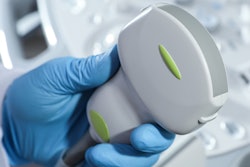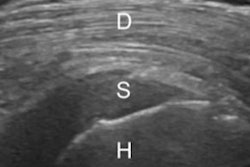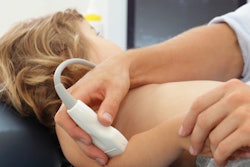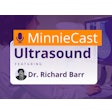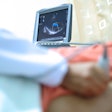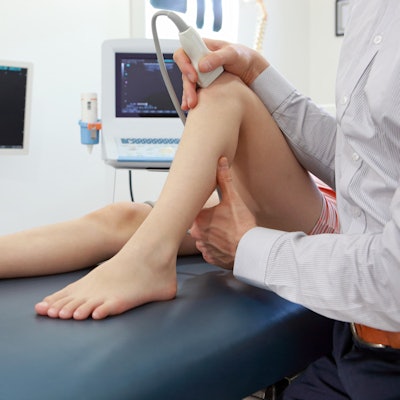
Radiology is losing control of musculoskeletal (MSK) ultrasound. But the situation could be turned around if radiology programs use residents to train others in the performance and interpretation of MSK ultrasound scans, according to a study published online September 19 in Academic Radiology.
The findings offer a solution to the problem of increased demand for musculoskeletal ultrasound while there is also a marked inadequacy of radiology resident training in it, wrote a team led by Dr. Netanel Berko of the University of Pennsylvania.
"This rising demand for musculoskeletal ultrasound has resulted in increased pressure on radiology residency programs to ensure their trainees graduate with sufficient skills to meet this demand," the group wrote. "But, not all radiology residency programs are providing adequate training in this crucial area, citing such reasons as a scarcity of faculty members proficient in musculoskeletal ultrasound and a paucity of time available for teaching."
Radiologists' market share of musculoskeletal ultrasound has dropped dramatically in the past decade -- from 65% to 37% -- and it's crucial that residency programs step up, according to the authors.
"Ominously, a recent survey of program directors revealed that training programs in other medical specialties, including rheumatology and physiatry, provided their trainees with more training in musculoskeletal ultrasound than radiology residencies provided," they noted. "To make matters worse, among training programs that currently do not teach musculoskeletal ultrasound, radiology residencies were less likely than other training programs to expand their curricula to include musculoskeletal ultrasound in the near future."
To address the problem, Berko and colleagues designed a peer-led musculoskeletal ultrasound curriculum with a hands-on scanning component for radiology residents. The curriculum consisted of five one-hour lectures and two hands-on workshops. Study participants included 37 residents and six radiologists who served as peer teachers, four of whom were fourth-year residents and two of whom were musculoskeletal radiology fellows.
The researchers assessed the residents' diagnostic ultrasound skills via a multiple-choice test before and after the curriculum was administered; their hands-on skills were evaluated at the end of the course and two months later. The residents also gauged their own confidence in performing musculoskeletal ultrasound both before and after the course via a survey based on a five-point scale (with 1 meaning "strongly disagree" or "no knowledge" and 5 meaning "strongly agree" or "comprehensive knowledge").
Before participating in the curriculum, residents reported low levels of musculoskeletal ultrasound knowledge and low confidence in performing and interpreting musculoskeletal ultrasound examinations.
| Effect of peer training on MSK ultrasound knowledge, performance | |||||
| Before the course | After the course | p-value | |||
| Level of MSK ultrasound knowledge (scale of 1-5) | 2 | 3 | < 0.001 | ||
| Are comfortable performing MSK ultrasound (scale of 1-5) | 1 | 3 | < 0.001 | ||
| Are comfortable interpreting MSK ultrasound (scale of 1-5) | 1 | 3 | < 0.001 | ||
| Mean multiple-choice test score | 57 | 73.9 | < 0.001 | ||
At the end of the workshops, participants were able to obtain diagnostic-quality ultrasound images 100% of the time; however, two months later, they were able to do this 79% of the time -- a drop the researchers attributed to a lack of continued practice.
"While the skill acquisition rate immediately following the workshops was 100%, the skill retention rate two months later was 79%, and likely would decrease further over time," the group noted. "Recurrent workshops over the course of training would be useful to help reinforce skills."
In any case, Berko and colleagues found that a peer-taught curriculum offers a useful way to train residents in musculoskeletal ultrasound and conveys a number of advantages, including camaraderie between learners and teachers as well as a confidence boost for the teachers, who through transmitting the material are able to further strengthen their own understanding of it.
"The use of peer teaching can help bridge [the training] gap by instilling radiology residents with musculoskeletal ultrasound skills in a way that does not require more skilled faculty involvement than necessary," the researchers concluded.





